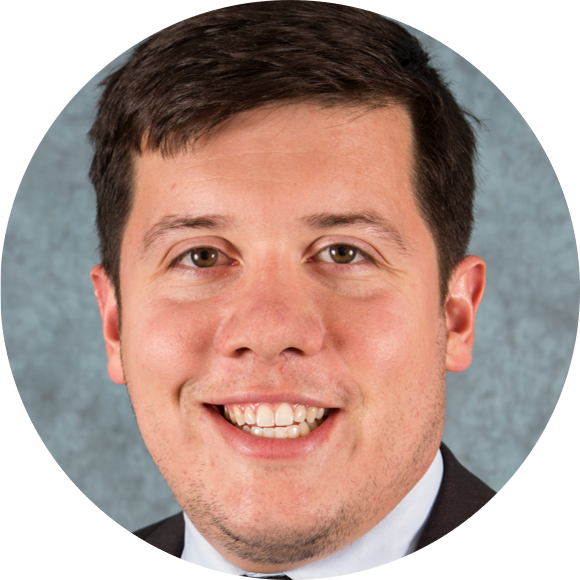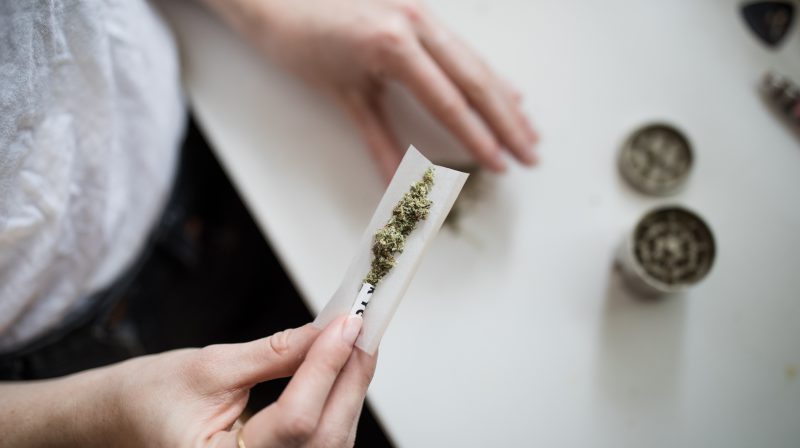BY BOB PAYNE
“Jim” boards the plane in Denver. After a weekend of high-elevation hiking and brewery IPAs, he’s packed his checked bag with pot brownies, which his wife loves. Home in New Orleans, he drives straight from the airport to his office, the pot brownies still in his bag. The youth nonprofit he works for has a significant grant application to apply for, and there’s work to do.
The close friend I’ve called Jim helps youth in New Orleans. I’m a graduate student here at the Kennedy School. Together we represent the reality of upper class, young white America today: we live in cities, have received excellent educations, and do mission-driven work. I live in a state that has legalized pot, and Jim does not. But here’s another thing we have in common: we don’t worry about getting arrested for marijuana.
Hundreds of thousands of us will light up today on 4/20, the informal pot holiday. Jim will smoke in his backyard amidst the shotgun homes of Mid-City New Orleans. I will light up with classmates from Harvard. Police won’t bust through his fence and arrest him in his backyard. My upstairs neighbors won’t call the police.
On this year’s 4/20, pot has become legal–but only if you live in the right neighborhood and have white skin. But for people of color and neighborhoods of color, it doesn’t matter if pot’s legal or not. Cops still lock up people of color for weed.
Here in the Bay State, voters approved marijuana legalization in 2016, years after Colorado. But even when a state legalizes marijuana, significant restrictions still exist. You can’t sell marijuana without a license. You can’t carry more than 1 oz. in public. And you can never smoke it in public—although a quick walk in JFK Park already proves that regulation ineffective.
Who faces the higher chance of arrest for marijuana? Here in Boston, in the year before legalized marijuana, seven black residents faced arrest for every one white resident. In supposedly progressive New York City, Blacks and Latinos represent 86% of possession arrests. That’s about 50,000 people, or the population of Back Bay locked up every year.
How about states with legalized marijuana? Try again. In Washington DC, four blacks face arrest for marijuana for every one white. In Alaska: ten to one. The police continue to lock up almost exclusively blacks and Latinos for public consumption, sales, or possession of more than an ounce. Soon, the same will likely happen in Massachusetts.
Meanwhile, every credible study finds that whites use marijuana at the same rate as blacks, like in this 2017 Brookings analysis. Of course, disparities in arrests contribute to the ongoing issue with mass incarceration that has locked up hundreds of thousands of people of color. It remains a huge problem—but we can do something simple to begin to lessen it.
No American locality has ended racially discriminatory marijuana arrests. The solution: end marijuana arrests outright.
We already know the extinction of pot arrests won’t ruin our communities. We’ve functionally stopped arrests for possession and smoking for whites in cities around the country. In Denver, just 16 white people face arrest for pot every day, out of over 500,000 white people. Here in Cambridge, students can light up on the Charles River, feet from Harvard’s doors. These white areas have faced no increases in crimes. Crime continues to fall. What about New York, where the cops arrest less than three white people per borough every day? Criminal offenses reached an all-time low in 2017.
Why not just legalize pot? Progressives see marijuana legalization as both step towards ending mass incarceration and a source of tax revenue. But even with legalization, the racial disparities will still exist. Colorado, Washington DC, and Alaska all still have huge inequalities even with legalization. Soon, despite “legal marijuana,” Boston will too.
We shouldn’t lock up our most impoverished populations for lighting up while the rich smoke freely. This 4/20, the police won’t arrest Jim as he sits on his porch and inhales. Cambridge cops won’t bug me as I walk down Massachusetts Avenue and vape. Police need to start treating people of color the same way.

Photo Credit: Thought Catalog via Unsplash
Edited by James Pagano
